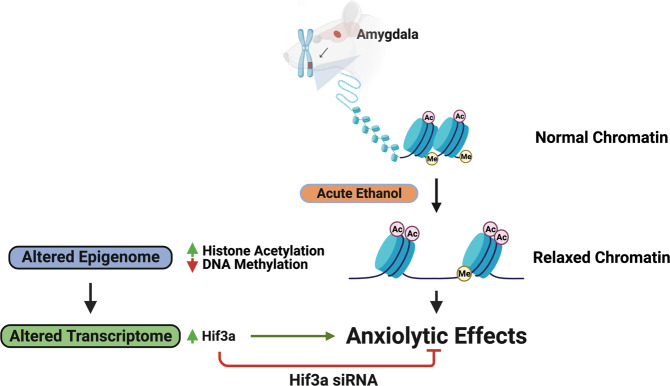Fig. 5. This model depicts the ability of acute ethanol to rapidly alter the epigenome in the amygdala and produce transcriptomic changes.
These genome-wide chromatin accessibility and transcriptomic signatures in the amygdala are associated with anti-anxiety effects of ethanol in rats. One such candidate gene is hypoxia-induced gene transcription factor, Hif3a, which is epigenetically induced by acute ethanol, and anxiolytic effects associated with acute ethanol are prevented by inhibiting Hif3a expression in the central nucleus of amygdala of rats. The rapid and dynamic epigenomic modifications from a low dose of ethanol clearly suggest that these molecular processes may prime the amygdala to the emotional negative consequences that are most commonly associated with and promote alcohol use disorder.

